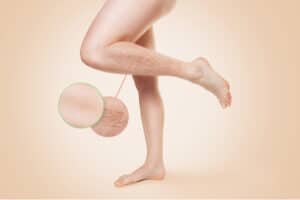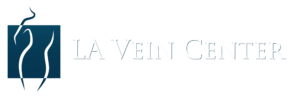
What are Varicose Veins?
Varicose veins are large, distended, potentially discolored veins in the legs. When the vascular system is in optimal working order, blood travels through arteries to oxygenate all organs and tissues. The deoxygenated blood travels back to the lungs and heart via a system of veins. Because circulation must work against the force of gravity when leaving the legs, these veins have one-way valves at various points. These valves, alongside muscle contractions in the calves, help move blood efficiently up the legs. If the valves fail to work, blood pools in the segment of the vein just before the valve. Over time, the vein swells with this stagnant blood, causing visible distention and twisting.
There are several reasons a person may develop varicose veins. One is having a family history of the condition. If parents or siblings have varicose veins, there may be a higher chance that you will also develop them. However, we also have to look at lifestyle habits. If all members of a family share similar lifestyle habits, such as a general lack of physical activity, this controllable factor may be the root cause of what looks like a family history of vein disease. In addition to these two factors, a person’s risk of varicose veins could increase during pregnancy and other hormonal fluctuations, specifically as progesterone is involved. A person’s general weight and age also contribute to varicose vein risk.
Do Varicose Veins Mean I am Unhealthy?
Having varicose veins can be uncomfortable physically as well as emotionally. First, you may be concerned about their appearance. Then, if you develop multiple varicose veins that are long, twisted, bulges, you might wonder if these veins are a sign of poor vascular health. In most cases, varicose veins are simply a symptom of venous insufficiency. The valves in the affected veins just aren’t working properly. Having varicose veins is not typically viewed as a general health risk or risk to the heart. This is good news. However, it doesn’t mean that you want to leave these distended veins untreated.
You deserve to feel comfortable and happy with your appearance, too. Whether your varicose veins are symptomatic or not, you can choose to have them treated. In addition to clinical intervention for varicose veins, such as sclerotherapy, radiofrequency ablation, or microphlebectomy, you can support healthy veins by moving your body frequently. Short walks taken a fw times a day, several days a week, help circulation via contraction of the calf muscles. If you tend to be more stationary at work or at home, create a new habit of getting up every hour or so to move the legs for a few minutes.
At L.A. Vein Center, we customize each treatment to the patient’s needs. To schedule a consultation with Dr. Lee in our Sherman Oaks office, contact us at (818) 325-0400.

